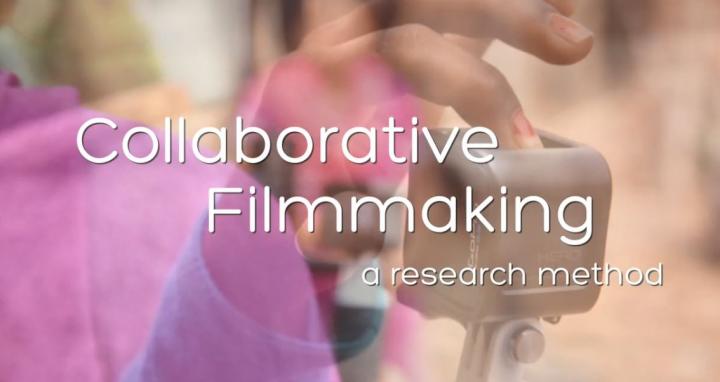
Credit: Pitt Public Health
PITTSBURGH, Sept. 25, 2019 – The research community is increasingly recognizing video as more than just a medium to disseminate scientific findings after a study’s conclusion. A powerful tool, film can engage study participants and become an integral part of the scientific process, when deployed thoughtfully.
To guide this emerging practice, University of Pittsburgh Graduate School of Public Health scientists performed the first review of studies on use of film in public health research, reporting their findings in the journal Qualitative Health Research.
“Film can add a powerful dimension to public health research with its ability to capture nuance in opinions, emotions and spaces that often are beyond the scope of more traditional methods, such as multiple-choice surveys,” said lead author Sara Baumann, Ph.D., postdoctoral researcher at Pitt Public Health. “But our review also raises some important ethical and logistical challenges that must be considered.”
Baumann and senior author Jessica Burke, Ph.D., professor and associate chair of Pitt Public Health’s Department of Behavioral and Community Health Sciences, have been using video in their research for several years, through a method they developed called “collaborative filmmaking.” Their technique uses filmmaking to engage participants throughout all stages of the research process. Participants collaborate with researchers to create short films about the research question, analyze the films in partnership with the researchers and then work as a team to determine the best way to share the findings, such as a community screening.
To learn more about the use of film in public health research, the authors identified 20 peer-reviewed public health studies incorporating the use of film that described opportunities and challenges. The most common research topic was adolescent health, with 40% of the studies focusing on it, followed by mental health, environment and neighborhood effects on health, asthma, and immigrant and refugee health.
Strengths of using film for public health research were:
- Providing uniquely detailed descriptions of behavior, interactions and environment.
- Capturing “insider” perspectives and cultural practices.
- Increasing the level of comfort of the participants through a multimedia presentation of information, rather than only text and numeric data.
- Empowering participants to express themselves in ways comfortable to them.
- Disseminating study results through video to more easily advocate for change.
Notable challenges to consider when using film in public health research include:
- Determining and protecting the level of privacy desired by the participants.
- Appropriately crediting the participants if they want recognition for their role in the film’s creation.
- Acknowledging that participants may filter and present themselves in ways they deem more socially acceptable on film than they would without a camera.
- Analyzing film content can be time-consuming and resource-intensive.
- Obtaining and operating film equipment may be a barrier to the researcher and the participant — for example, one study involved participants with leprosy who could not easily manipulate the cameras with their hands.
“These issues are generally not insurmountable, and our findings can guide the use of film in public health research, which naturally will accelerate collaboration and best practices to address these challenges,” Burke said. “Film is not new to research — it’s been used in sociology, education, criminology and psychology studies — we’re overdue to embrace creativity and harness it for public health research.”
###
Additional authors on this study are Monica Merante, B.Phil., and Barbara L. Folb, M.P.H., both of Pitt.
About the University of Pittsburgh Graduate School of Public Health
The University of Pittsburgh Graduate School of Public Health, founded in 1948 and now one of the top-ranked schools of public health in the United States, conducts research on public health and medical care that improves the lives of millions of people around the world. Pitt Public Health is a leader in devising new methods to prevent and treat cardiovascular diseases, HIV/AIDS, cancer and other important public health problems. For more information about Pitt Public Health, visit the school’s Web site at http://www.
http://www.
Contact: Allison Hydzik
Office: 412-647-9975
Mobile: 412-559-2431
E-mail: [email protected]
Contact: Erin Hare
Office: 412-864-7194
Mobile: 412-738-1097
E-mail: [email protected]
Media Contact
Allison Hydzik
[email protected]
Related Journal Article
http://dx.




